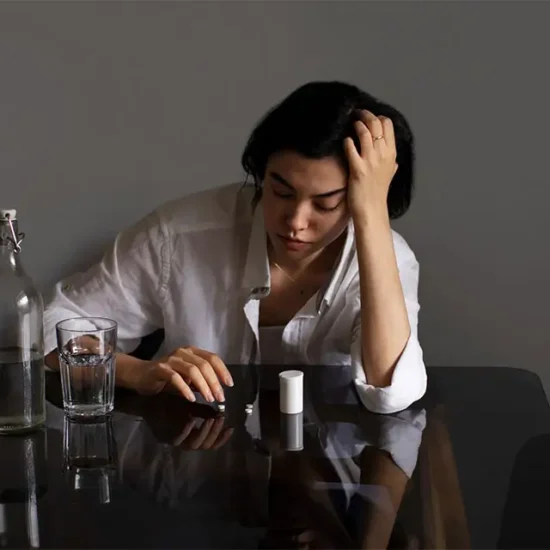Depression is a common and significant mental health problem. It causes ongoing feelings of sadness, hopelessness, and a loss of interest in daily activities. These feelings can deeply affect a person’s relationships, work, and overall quality of life. Because depression is so widespread and impactful, finding effective treatments is essential.
There are many treatments for depression, from outpatient therapy and medication to more intensive options like inpatient therapy. In this blog, we’ll look at how effective inpatient therapy for depression is, what it involves, how it works, and whether it might be the right choice for those dealing with this difficult condition.
What is Inpatient Therapy?
Inpatient therapy for depression means staying at a specialized facility where you receive care and support all day, every day. Inpatient therapy differs from outpatient therapy because it involves living at the treatment center instead of just attending sessions and going home. This setup allows for constant monitoring, quick help when needed, and intensive treatment.
Inpatient therapy for depression is offered at places like psychiatric hospitals, mental health units in general hospitals, and specialized rehab centers. By providing a safe and orderly environment, these facilities allow individuals to concentrate fully on their recovery without the interruptions and pressures of daily life.
Inpatient therapy is usually recommended for people with severe depression, especially if they are at risk of self-harm or suicide. It’s also an option for those who haven’t improved with outpatient therapy or medication. The main goal is to stabilize the patient, manage their symptoms, and get them ready for ongoing recovery after they leave the facility.
Does Inpatient Therapy Work for Depression in Real?
Many clinical studies and research show that inpatient therapy for depression can be very effective, especially for people with severe or hard-to-treat depression.
A study in the Journal of Affective Disorders showed that patients who received inpatient therapy for depression made significant improvements. The structured environment, along with intensive therapy and medical care, helped achieve these positive results. Inpatient therapy provides personalized care that is especially important for people with complex or severe symptoms.
Patients and healthcare providers often share stories that highlight how well inpatient therapy works. Patients say that being in a safe and supportive environment helps them concentrate fully on getting better without the stress of everyday life. Healthcare providers also notice that inpatient therapy is crucial for stabilizing patients in crisis, setting them up for ongoing recovery after they leave the facility.
People who go through inpatient therapy for depression often see their symptoms decrease, learn better ways to cope, and improve their overall mental health. Although results can vary from person to person, many patients experience lasting benefits from their time in therapy.
How Does Inpatient Therapy Work for Depression?
Inpatient therapy for depression uses a variety of treatments and medical care. The therapy is tailored to each person’s needs, making sure every part of their mental health is taken care of.
Key components of inpatient therapy include:
- Therapeutic Approaches: Patients in inpatient therapy may take part in individual sessions, group therapy, and proven methods like cognitive-behavioral therapy (CBT) or dialectical behavior therapy (DBT). These therapies help them recognize and change negative thoughts, build better coping skills, and address the root causes of their depression.
- Medication Management: In inpatient care, medication is closely monitored. Psychiatrists manage the medication, making changes when needed to get the best results. This is especially important for patients with depression that doesn’t respond to treatment or who have serious side effects from their medication.
- Multidisciplinary Team: A team of mental health professionals, like psychiatrists, psychologists, nurses, and social workers, work together to provide complete care. Each person has their area of expertise, making sure all the patient’s needs are covered.
- Structured Environment: Inpatient therapy provides a structured environment with a daily schedule that includes therapy sessions, group activities, and relaxation time. This routine offers stability and predictability, which is especially helpful for people with depression.
- Aftercare and Discharge Planning: Getting ready for life after inpatient therapy is an important part of the treatment. The care team helps patients create a plan for aftercare, which might include outpatient therapy, medication management, and ongoing support. This plan helps keep up the progress made in therapy and lowers the risk of relapse.
Is Inpatient Therapy the Best Way to Treat Depression?
While inpatient therapy for depression can be very beneficial, it isn’t the best option for everyone. Deciding to go for inpatient therapy depends on things like how severe the symptoms are, personal preferences, whether there’s a support system, and financial factors.
Other ways to treat depression include therapy, medication, and lifestyle changes. Outpatient therapy lets people get help while still going about their normal lives, which works well for those with less severe symptoms. Medication is often used along with therapy to help control symptoms and can be a good way to treat depression.
Inpatient therapy may be the preferred option in certain situations, such as when:
- Symptoms are severe: For people with severe depression, especially those at risk of self-harm or suicide, inpatient care can save lives.
- Other treatments have not worked: If therapy or medication outside the hospital isn’t working, inpatient care might offer the focused help needed to improve.
- A safe environment is needed: Inpatient therapy gives a safe space where people can entirely focus on getting better without the distractions or stress of everyday life.
When thinking about inpatient therapy for depression, it’s important to look at both the good and bad sides, like the cost and what your insurance will cover. Inpatient therapy can be pricey, and some insurance plans might not pay for everything. Make sure to check with your insurance company and the treatment center to know what they cover and what costs you’ll need to pay yourself.
Case Studies and Examples:
- Treatment-Resistant Depression: For people who haven’t improved with therapy or medication outside the hospital, inpatient therapy can offer the intense care needed to help them start recovering.
- Crisis Intervention: When someone is going through a mental health crisis, inpatient therapy provides quick help and strong support, which can be very important in keeping them safe and starting their recovery.
FAQs
Q: How long does inpatient therapy usually last
A: Inpatient therapy for depression typically lasts from a few days to several weeks, depending on the individual’s needs and response to treatment. The treatment team regularly assesses progress to determine the appropriate length of stay.
Q: What is an inpatient treatment program?
A: An inpatient treatment program involves staying at a facility where you receive 24/7 care and support for mental health issues, focusing intensively on recovery and stabilization.
Q: What can I expect during my stay?
A: During inpatient therapy, you will participate in individual and group therapy sessions, receive medication management, and engage in therapeutic activities. The daily routine is structured to provide stability and focus on recovery.
Q: How can I determine if I need inpatient treatment?
A: Inpatient therapy may be right for you if you have severe depression, are at risk of self-harm, or have not responded to other treatments. A mental health professional can help determine if inpatient therapy is the best option for your situation.
Conclusion
Inpatient therapy for depression is an important treatment option for people with severe depression. It provides a safe and structured place to focus on recovery. While it may not be right for everyone, it can be very helpful for those with serious symptoms. How well inpatient therapy works depends on the severity of the depression, how the person responds to treatment, and the quality of follow-up care.
If you’re thinking about inpatient therapy, it’s important to get professional advice and consider both the pros and cons. The goal is to find the best treatment plan for your needs to improve your mental health and well-being.
If you or someone you know is dealing with severe depression, BHouses is here to help. Our team offers the care and support needed for recovery. Reach out to us today to find out more about our programs.










